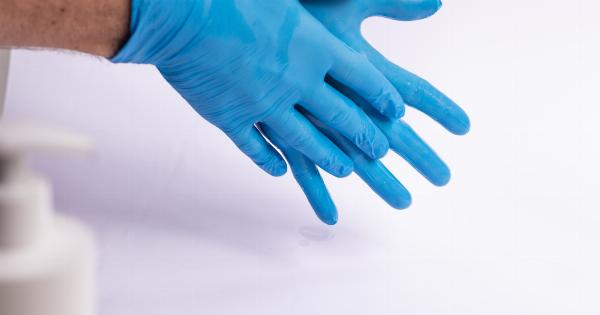Gastroenteritis is a common disease caused by inflammation of the stomach and intestines. It is caused by a virus, bacteria or parasite that can be contracted by consuming contaminated food or water.
The severity of gastroenteritis can vary from mild to severe, and can cause symptoms such as vomiting, diarrhea, nausea, fever and stomach cramps. In most cases, gastroenteritis will resolve without any treatment. However, in severe cases, it can lead to dehydration, which can be life-threatening.
What are the causes of Gastroenteritis?
Gastroenteritis is caused by infection with a virus, bacteria, or parasite. These can be spread through contaminated food or water. The most common causes of gastroenteritis include:.
- Rotavirus and Norovirus – most common cause of gastroenteritis in children
- Campylobacter – usually found in raw or undercooked meat, unpasteurized milk, and untreated water
- Salmonella – found in contaminated food, especially eggs and poultry
- Giardia – a parasite found in contaminated water
- Escherichia coli – found in undercooked beef, raw milk, and contaminated vegetables and fruit
How to prevent Gastroenteritis?
There are several steps you can take to prevent gastroenteritis, including:.
1. Wash your hands frequently and thoroughly
Hand washing is the most effective way to prevent the spread of gastroenteritis. You should wash your hands:.
- Before preparing food
- Before eating
- After using the bathroom
- After changing a diaper
- After handling pets or their waste
Use soap and warm water, and rub your hands together for at least 20 seconds. Rinse your hands well, and dry them with a clean towel or air dryer.
2. Cook food thoroughly
Cook all meat, poultry, and eggs thoroughly to kill any bacteria that may be present. Use a meat thermometer to ensure that the meat is cooked to the proper temperature:.
- Beef and pork – 160 degrees Fahrenheit
- Poultry – 165 degrees Fahrenheit
- Eggs – Cook until the yolk and white are firm
3. Clean and sanitize
Clean and sanitize all kitchen surfaces, dishes, utensils, and cutting boards after each use. Use a solution of one tablespoon of bleach in one gallon of water to sanitize surfaces and utensils.
4. Avoid cross-contamination
Keep raw meat, poultry, and eggs separate from other foods in your grocery cart and refrigerator. Use separate cutting boards, utensils, and dishes for preparing raw meat, poultry, and eggs.
5. Dispose of waste properly
Dispose of animal feces in sealed plastic bags and place them in the trash. Wash your hands thoroughly after handling pet waste or cleaning up after your pet.
6. Drink safe water
Drink only bottled or treated water when traveling to areas where the water may be contaminated. If you boil your water, bring it to a rolling boil for at least one minute to kill any bacteria or parasites that may be present.
7. Stay home when you are sick
Stay home from work or school when you are sick with diarrhea or vomiting. Wash your hands frequently, especially after using the bathroom, to prevent the spread of the virus or bacteria.
8. Vaccination
There are vaccines available for certain types of gastroenteritis. The rotavirus vaccine is given to infants and helps prevent severe diarrhea caused by the rotavirus.
The hepatitis A vaccine is recommended for people who are at high risk of contracting the virus, such as those traveling to areas where the virus is common or those who work with infected animals.
Conclusion
Gastroenteritis can be prevented by practicing good hygiene and avoiding contact with contaminated food and water.
By washing your hands frequently, cooking food thoroughly, and following safe food handling practices, you can reduce your risk of gastroenteritis. If you do become sick with gastroenteritis, stay hydrated and avoid contact with others to prevent the spread of the illness.





























